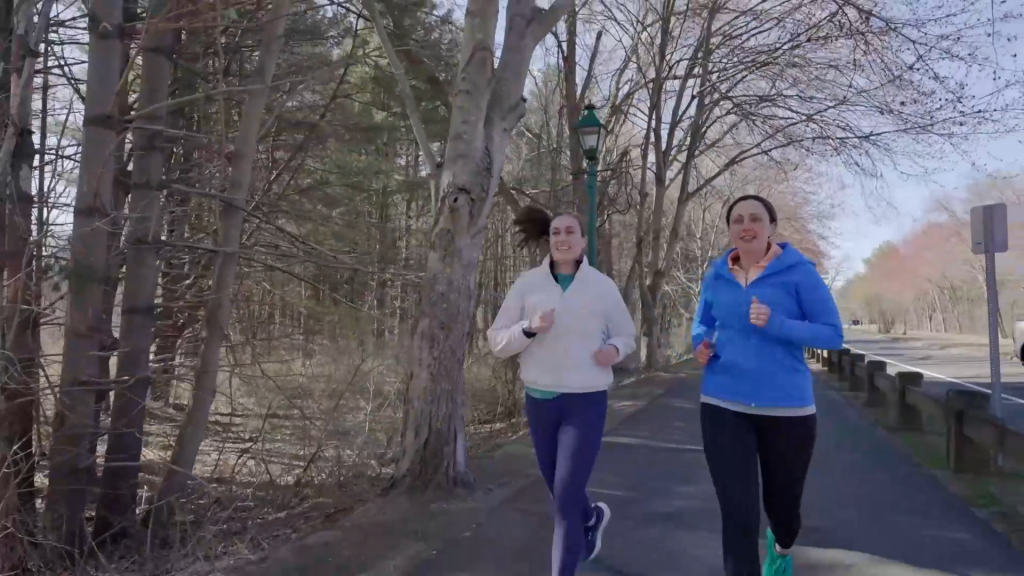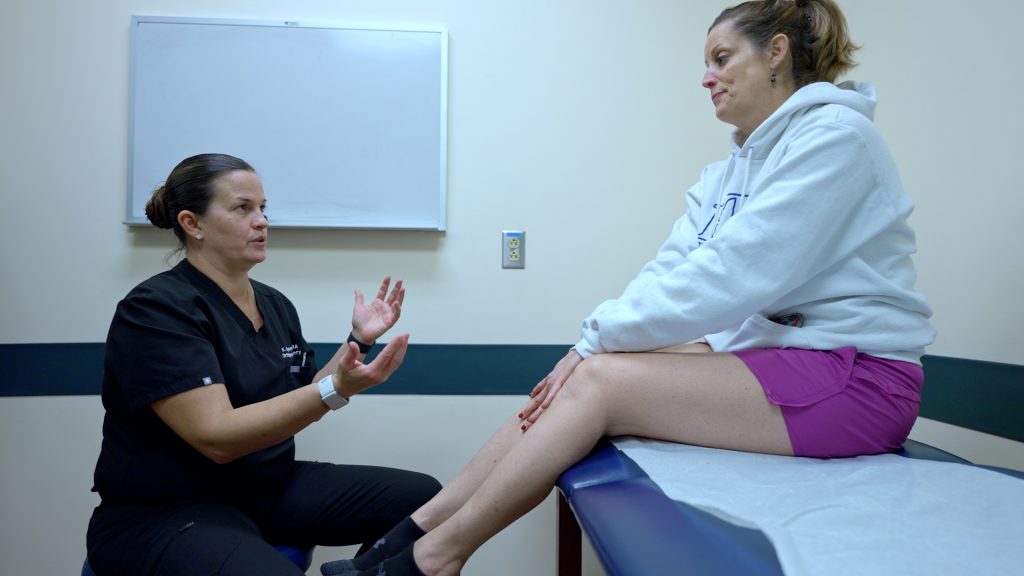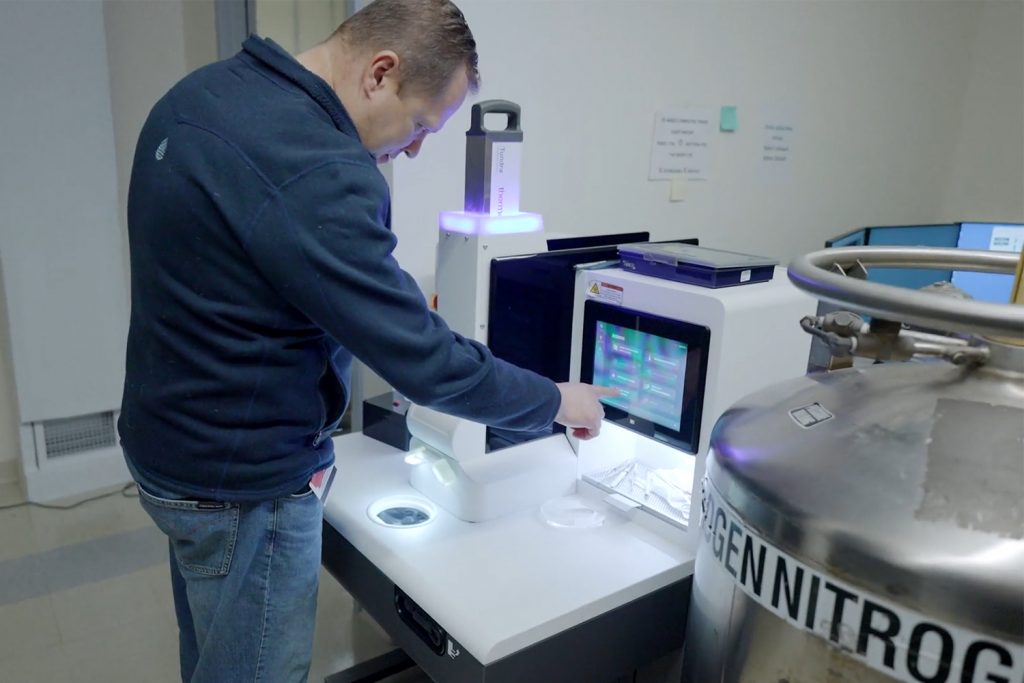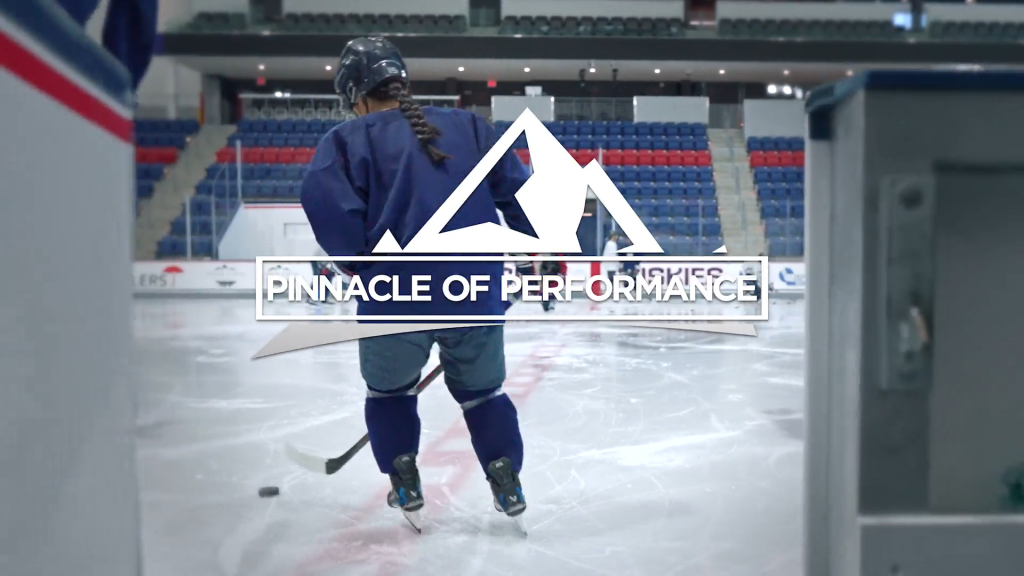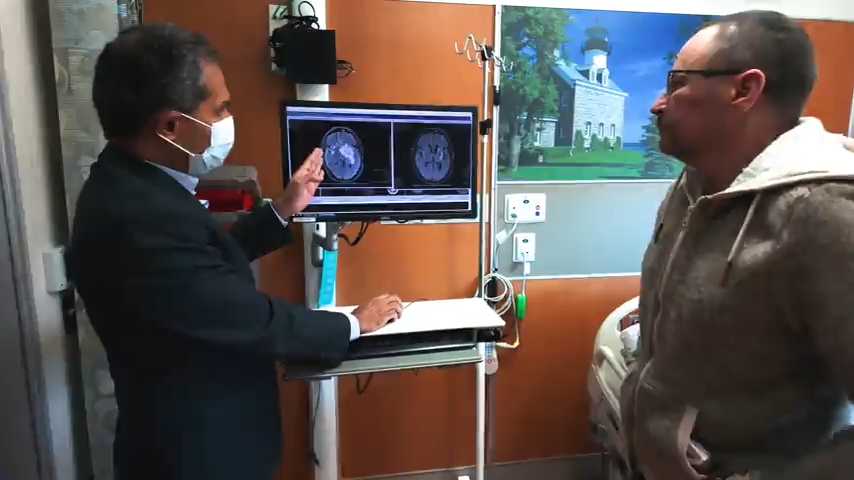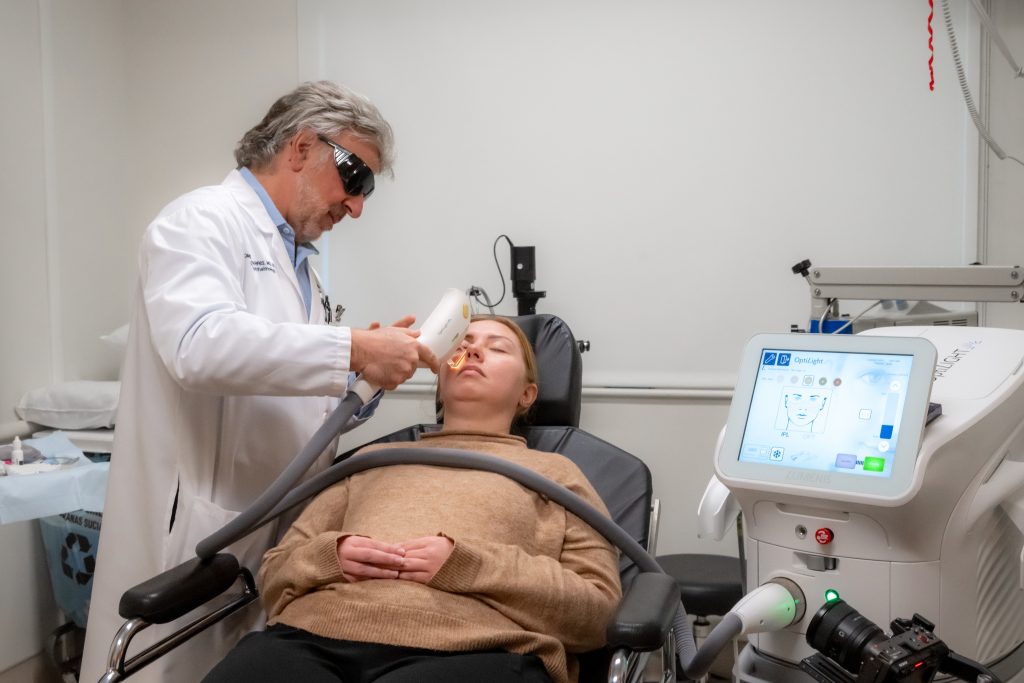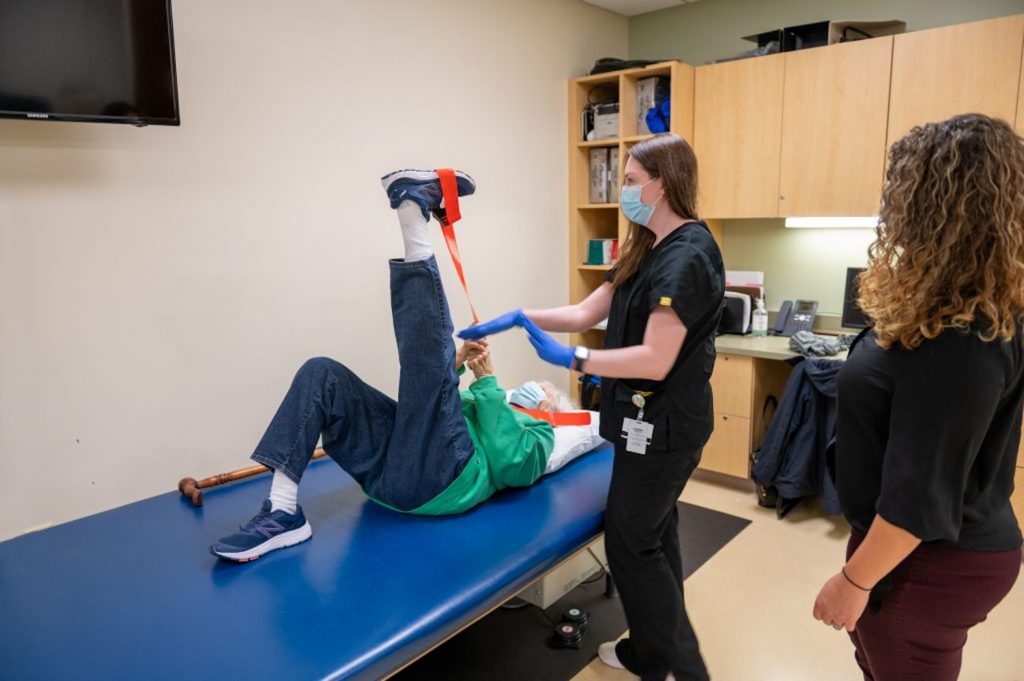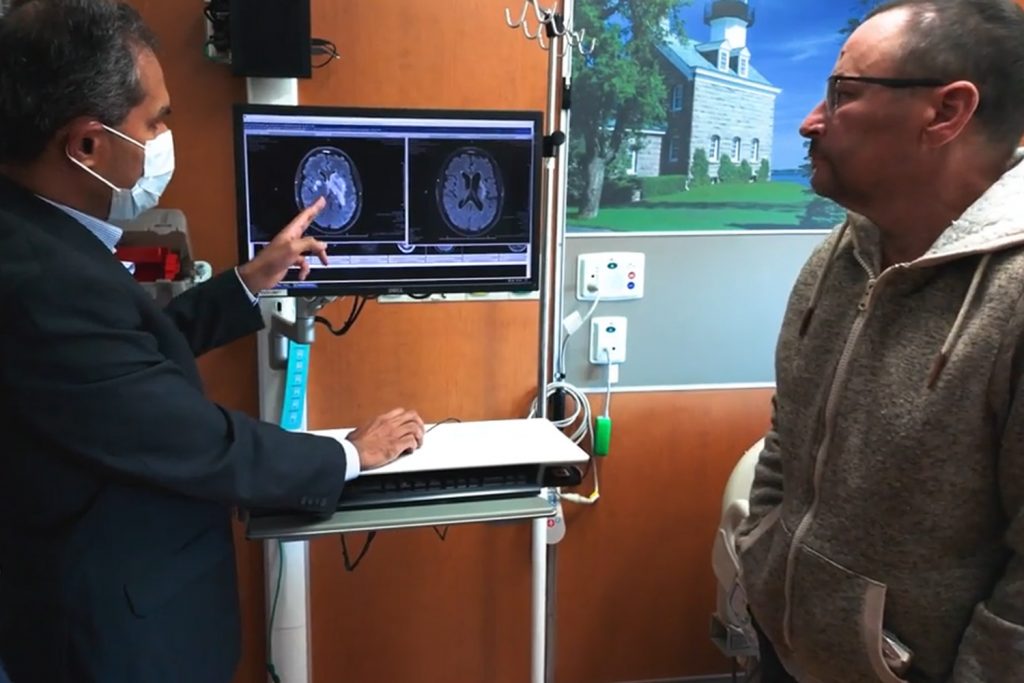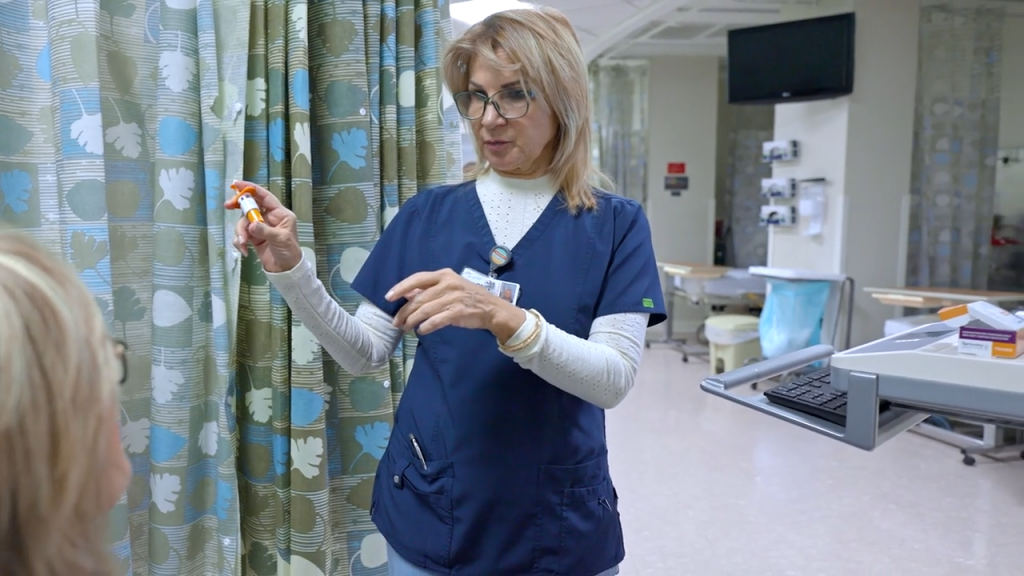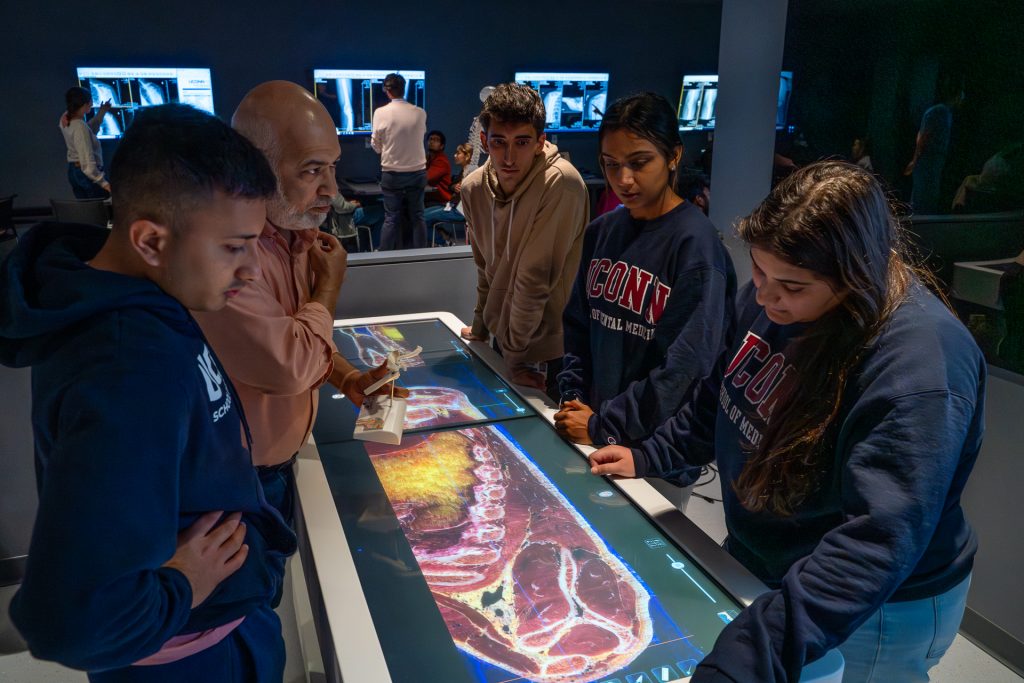Carolyn Pennington
Author Archive
UConn Health Half Marathon: Motivational Mantras That Work
UConn Health internal medicine physician Jennifer Ozimek has several mantras that help keep her motivated through to the finish line.
April 23, 2025 | Carolyn Pennington
Healing for Another Shot
Injured World Cup Athlete Competing Again Thanks to UConn Health
April 22, 2025 | Carolyn Pennington
Science in Seconds: Freeze Frame
Wolfgang Peti, PhD, professor of molecular biology and biophysics, shows us how cryo-EM works and how it can help speed up drug design and ultimately patient care
March 24, 2025 | Carolyn Pennington
Pinnacle of Performance: What to Know about Knee Injuries
Knee injuries account for more than 40 percent of sports injuries. While not all knee damage can be prevented, there are things you can do to help reduce the chances of injury. In this episode of Pinnacle of Performance, we hear from UConn women’s ice hockey player Meghane Duchesne Chalifoux who suffered an ACL tear […]
March 10, 2025 | Carolyn Pennington
UConn Health Minute: Lifesaving Stem Cell Transplant
Dr. Kapil Meleveedu, director of Blood and Marrow Transplantation at UConn Health, discusses how his team provided lifesaving care for a patient with a rare and aggressive brain cancer.
February 24, 2025 | Carolyn Pennington
UConn Health Minute: Dry Eyes Due to Screen Overuse
Excessive gaming or digital screen use can cause dry eye syndrome, a condition that can lead to vision problems and difficulty performing every day tasks. As UConn Health’s Chief of the Division of Ophthalmology Dr. Edmund Farris explains, for serious cases, there are new treatments that can help provide relief.
February 10, 2025 | Carolyn Pennington
UConn Health Minute: The Future of Aging
The UConn Center on Aging conducts a variety of studies on aging-related issues. In this UConn Health Minute, Jenna Bartley, PhD, discusses her research looking at ketone ester supplementation to promote health, function and independence in older adults.
January 27, 2025 | Carolyn Pennington
Bone Marrow Transplant Team Provides Lifesaving Care for German Patient with Rare Brain Cancer
As the couple prepares to head back to Germany, they say they will always consider UConn Health their second home
December 17, 2024 | Carolyn Pennington
UConn Health Minute: Treating Severe Depression
It’s estimated that 30% of people with severe depression and suicidal thoughts are diagnosed with treatment-resistant depression. As Dr. Caleb Battersby, director of Interventional Psychiatry at UConn Health explains, esketamine nasal spray works differently than oral antidepressants and typically brings relief within hours or days of receiving the medication.
December 3, 2024 | Carolyn Pennington
Virtual Anatomy Lab
An authentic experience with current imaging methods
November 21, 2024 | Carolyn Pennington
